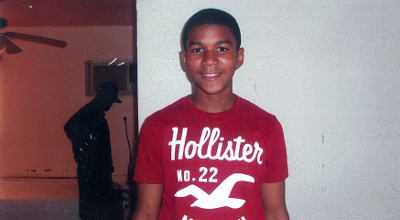Don’t Add Fuel to Racism’s Fire
I live eight miles from the gated subdivision where Trayvon Martin died on Feb. 26. A few weeks ago that section of Sanford, Fla., was as peaceful as the palms that sway in our humid breezes. But since the black teenager’s unexplained death, an unsettling pall of anger and suspicion hangs in the air.
The specter of American racism has returned. And the world is watching us argue about it.
Upset citizens have marched in Sanford, and similar protests have been staged in New York, Miami, Tallahassee, Fla., and the nation’s capital. Trayvon has become a national symbol of injustice. People want to know why George Zimmerman, the 28-year-old man who shot Trayvon (allegedly in self-defense), was not arrested after the incident. Those who are most angry about the case claim that Zimmerman killed the unarmed boy simply because he was black and wearing a hoodie—and that a racist police force mishandled the case simply because they don’t care about black boys.
When you throw those accusations into a boiling pot, mix in combustible comments by the Rev. Al Sharpton and the Rev. Jesse Jackson, add a demand from the New Black Panther Party (they are offering a $10,000 reward for Zimmerman’s “capture”), and then stir it up with 24/7 media coverage, you know you are about to get a fiery explosion.
Speaking to city leaders in Sanford on Monday, Sharpton threw more gasoline on the fire when he said: “You are risking going down as the Birmingham and Selma of the 21st century.”
Before people torch Sanford’s courthouse—or lynch Zimmerman—I hope they will cool off long enough to look around. This is 2012. It is not 1968. Yes, racism is still alive in America—and it exists in white hearts and black hearts alike. But Sanford is not Selma, Ala. We’ve come a long, long way since the days of segregated bathrooms, firebombings and bus boycotts.
We have made progress. Why do we have to say things, especially in the media, that rekindle old feelings of resentment and racial hatred? If we want the fires of racism to go out, why do we stoke them and blow more hot air on the cinders?
That is certainly not how Martin Luther King Jr. behaved before he was assassinated in Memphis, Tenn., 44 years ago by a holdover racist. Dr. King chose peace, and he preached it. He said: “Forgiveness is not an occasional act, it is a constant attitude.” And he warned: “Let no man pull you so low as to hate him.”
If Dr. King were alive today, I believe he’d be very concerned about whether Trayvon was a victim of racial profiling. But he would not be using incendiary words to provoke a fight. He would call for justice, and he would expect our justice system to work. He preached: “Returning violence for violence multiplies violence, adding deeper darkness to a night already devoid of stars. … Hate cannot drive out hate: only love can do that.”
Certainly Dr. King would side with Benjamin Crump, an attorney for Trayvon’s family, who told a crowd gathered at the Macedonia Baptist Church near Sanford on Monday that the New Black Panthers were hurting the cause by calling for mob justice. “We cannot give up our moral high ground,” Crump said. “We cannot do what we are accusing George Zimmerman of doing.”
Thousands of years ago, a wise king named Solomon offered some sage advice on how to promote harmony when tempers are hot. He wrote: “A gentle answer turns away wrath, but a harsh word stirs up anger” (Prov. 15:1, NASB). We’d save ourselves a lot of trouble today if we heeded this ancient rule of conflict management.
This is not a time to rush to judgment, hurl accusations or paint whole communities with a broad brush. That is the very definition of prejudice.
Yes, we still have a long way to go to eradicate racism. But here in Central Florida, a diverse population of blacks, whites, Hispanics, Indians, Vietnamese and Arab-speaking people live and work peacefully. Many of our churches are integrated. Let’s celebrate how far we’ve come, and then apply civility as we seek to extinguish all forms of injustice.
J. LEE GRADY is contributing editor of Charisma. You can follow him on Twitter at leegrady. His most recent book is 10 Lies Men Believe (Charisma House).














































